 I recently posted some photos of myself on my Facebook page and was surprised at the number of Likes they got. The pictures showed me playing my saxophone — or pretending to play it — in 1963 shortly after I’d acquired the thing from a family friend. I’m somewhat diffident about posting pictures of myself, but people do seem to be interested in these things and I may post more.
I recently posted some photos of myself on my Facebook page and was surprised at the number of Likes they got. The pictures showed me playing my saxophone — or pretending to play it — in 1963 shortly after I’d acquired the thing from a family friend. I’m somewhat diffident about posting pictures of myself, but people do seem to be interested in these things and I may post more.

Incidentally, my record number of Likes on Facebook has been 528 (plus 65 Shares) for a little snippet that I posted in a forum called The English Language Police, probably because it mentioned Neil Gaiman who appears to be enormously popular these days.

When he was a young wannabee Neil and another guy submitted a book proposal  to my fledgling publishing company, and I turned it down. Oh dear…
to my fledgling publishing company, and I turned it down. Oh dear…
But the photos set me reminiscing to myself about my various musical endeavours, which have been many and various, and wholly unsuccessful. They started with Saturday-morning piano lessons taken at my mother’s insistence when I was a schoolboy in Leeds. The teacher was Miss Banbury who lived in a rather gothic-looking house in a sort of park nearby. To get to it I had to open a huge creaky garden gate then walk up a long path snaking through overgrown rhododendrons to the house, where the door was opened by a maid who ushered me into the drawing room which housed the grand piano to await the arrival of Miss Banbury. She had leg-irons so I could hear her clanking towards me long before she arrived, which added to the Gothic qualms I was feeling — but she was actually a nice old lady, if rather strict.

For homework she gave me a booklet called Forest Fantasies which contained simple little tunes for piano which I dutifully worked my way through with no enthusiasm at all, but I pored over the cover which was by someone called W. Heath Robinson. I had shown some little talent for drawing and I thought that if I ever got good at it that was the kind of thing I’d like to do. A seed had been planted, albeit a non-musical one. The original booklet is long gone but much later I got hold of another copy which is now framed and hanging on my wall.
Miss Banbury got me through Level 1, which was quite an achievement as playing the piano was for me just a grim duty, and when I was packed off to boarding school at the age of twelve I flatly refused to have any more lessons. My mother told me that I’d regret it later and she was right, I do.
Music for me as a child consisted of the hymns we sang in church, the choruses and songs we sang as Boy Scouts (‘Ging-Gang-Gooly’ etc.), and Uncle Mac on the wireless who played a seldom-changing selection of so-called children’s records every Saturday morning. My sister and I were plonked down in front of the radiogram for this supposed treat, but I hated all those songs, especially the ones that left us little listeners hanging: there was The Runaway Train who ‘came down the track and she blew’ which ended ‘For all I know she’s blowing still’; the Three Little Fishies who swam and swam right over the dam and right out to sea, and the Billy Goats Gruff and the troll …  and some of the records were downright creepy, like My Grandfather’s Clock which ‘stopped short never to go again / when the old man died,’ and of course the Old Woman Who Swallowed a Fly (‘She’s dead, of course’). Uncle Mac was much later revealed to have been a suspected pædophile.
and some of the records were downright creepy, like My Grandfather’s Clock which ‘stopped short never to go again / when the old man died,’ and of course the Old Woman Who Swallowed a Fly (‘She’s dead, of course’). Uncle Mac was much later revealed to have been a suspected pædophile.
The radiogram housed a small collection of records — 78s in those days — handed down from my Harrogate grandparents and supplemented by a few that my father had bought. His taste was for the lighter sort of classical music, Mozart and Gilbert & Sullivan plus a few sacred songs, which I sometimes played when it was raining outside and there was nothing else to do. My favourite was one of my grandfather’s, ‘(I Got Spurs that) Jingle Jangle Jingle’ by The Merry Macs, but I secretly quite liked ‘All In the April Evening’ by the Glasgow Orpheus Choir and its flipside ‘By Cool Siloam’s Shady Rill’ which I heard as ‘… shady Rhyll’, the North Wales resort which we’d visited and which hadn’t seemed particularly shady to me.
This all changed dramatically in 1958 when the family moved from Yorkshire to Bromborough on the Wirral where I soon fell in with a bunch of kids who were into rock ‘n’ roll. One of them, Graham Noble, had an older brother who was a big fan of Elvis Presley and between them they had a collection of records by Elvis and a few others. I was vaguely aware of Elvis but hadn’t liked ‘Heartbreak Hotel’ — too slow, too morbid — but when Graham played ‘Hound Dog’ at full volume I was an instant convert. Our old radiogram had been discarded when we moved house and my father had bought a portable record player which would play these new-fangled little 45 rpm records, and I soon started collecting them myself whenever I could scrape together the money for one. 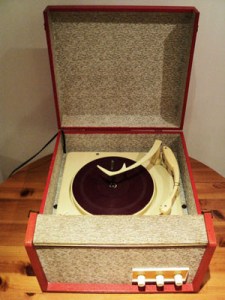 After a few false starts — the very first record I bought was ‘Big Man’ by The Four Preps, and to my subsequent shame and the mockery of my friends I even bought a Pat Boone EP — I soon tapped into the real thing, and for the next few years rock ‘n’ roll became something of an obsession: not much Elvis as Graham and his brother had all his records, but Chuck Berry, Eddie Cochran, Buddy Holly, Fats Domino, Gene Vincent, Bo Diddley, Brenda Lee, Jerry Lee Lewis and, best of all and partly because he was the one my otherwise tolerant parents couldn’t stand, Little Richard.
After a few false starts — the very first record I bought was ‘Big Man’ by The Four Preps, and to my subsequent shame and the mockery of my friends I even bought a Pat Boone EP — I soon tapped into the real thing, and for the next few years rock ‘n’ roll became something of an obsession: not much Elvis as Graham and his brother had all his records, but Chuck Berry, Eddie Cochran, Buddy Holly, Fats Domino, Gene Vincent, Bo Diddley, Brenda Lee, Jerry Lee Lewis and, best of all and partly because he was the one my otherwise tolerant parents couldn’t stand, Little Richard.
Rock ‘n’ roll in those days was regarded as a plebeian taste and at my posh boarding school it was frowned upon, but I soon found that there were a handful of boys who shared my passion for this degraded music and we formed a little rebellious clique. The records we collected were I suppose a form of escapism, seeming like mysterious messages from another, much more interesting world — the USA — and apart from their sheer excitement we learned from them that there were such things as sock-hop balls, red bluejeans and girls called Moronie. We puzzled over some of the more mysterious lyrics much more assiduously than we did over our French irregular verbs or the more obscure passages of Shakespeare. What on earth was ‘Jambalaya’ on about, for instance? Gotta go do a what on the bayou?
Back home in the holidays I soon discovered that the best record shop in the Merseyside area was NEMS in Liverpool, and I soon became a regular and rather annoying customer — annoying because having come a bit late to rock ‘n’ roll I was always looking for the more obscure records invariably to be told that they were deleted. (There were no ‘golden oldies’ or reissues in those days and once a record had had its few weeks in the charts it was removed from the catalogue, seemingly forever.) I remember being served by a polite, smartly-dressed young man who who addressed me as Sir seemingly without satirical intent and who asked if I’d like him to order it for me, which never produced the goods. It got to the point where I had only to show myself on the stairs leading down to the record department in the basement for the rest of the staff to yell out “It’s deleted, it’s deleted,” which was embarassing for a self-conscious 14-old, but I was on a mission and it didn’t deter me. A couple of years later when the Beatles were becoming famous I recognized their manager, Brian Epstein, also becoming famous, as the smart young man who had sometimes tried to help me in the shop.
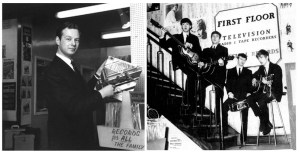
Like many other kids on Merseyside I wanted a guitar and there was excitement when my dad came home from a church bazaar with an interesting-looking parcel, bulgy at at one end and tapering at the other which turned out to be … a banjo. It was an ancient instrument with five strings, one of which disappeared down a sort of tunnel half-way along the neck. This sure as hell wasn’t what I wanted as I had no enthusiasm for trad jazz or folk music, but I did what I could with it until my teenage pal Brian Patten (not the poet, another one) called round and saw me through the window posing with it in front of the mirror, trying to make like Duane Eddy. When he came in he was laughing so hard he actually fell over. But Brian had a schoolfriend who was looking to sell his guitar, and my dad obligingly bought it for me. It cost £3 and it was a wretched thing, a Spanish-style acoustic with plastic strings and a very wide fretboard, but at least it was a guitar: much better for posing purposes and on it I managed to teach myself some basic chords and was soon able to play a few simple songs and even compose a couple of my own. But I was on my own with that. Brian and Graham had no musical instruments of their own, and on my trips to Liverpool I didn’t happen to meet John Lennon or Paul McCartney who might have helped me.
We did hear about these Beatles quite early on, however. Some of Brian’s schoolfriends had been to this place called the Cavern Club and Brian wanted us to go (“Apparently they play songs by Little Richard and Buddy Holly — all the stuff we like”) but our parents wouldn’t let us, thinking that as a club the Cavern would be serving alcohol which was strictly forbidden to us young Methodists, so we missed out on that treat though we did get to a Beatles concert in Southport a couple of years later.
At the time though (1959-62) we only very occasionally got to hear some live music. The first time was at the Liverpool Empire early in 1960 with a bill shared by Duane Eddy and Bobby Darin. I had all of Duane Eddy’s records including his first LP and was delighted to find that on stage he was as good as he sounded on the records.  This wasn’t always the case: when British acts performed live on tv backed by some hastily-assembled session musicians the results were usually dire, but Duane had brought his own band The Rebels with him and they were terrific, filling the theatre with sounds that it had probably never heard before. Bobby Darin was excellent too. Graham and I went back a couple of nights later and got their autographs at the stage door.
This wasn’t always the case: when British acts performed live on tv backed by some hastily-assembled session musicians the results were usually dire, but Duane had brought his own band The Rebels with him and they were terrific, filling the theatre with sounds that it had probably never heard before. Bobby Darin was excellent too. Graham and I went back a couple of nights later and got their autographs at the stage door.
Back at school in Bath in term-time there was even less opportunity to hear visiting Americans, and I ached with frustration when a package tour with Eddie Cochran and Gene Vincent played at a theatre in the city. There they were, these legendary figures whose records I knew by heart, performing just down the road while I was stuck at school doing prep with absolutely no way of getting out. It got even worse when it came on the news the next day that their car had crashed shortly after the gig and Eddie Cochran had died in a Bath hospital.  Happily, Gene Vincent survived and I was able to see him a bit later when my school friend Chris phoned me in the holidays to ask if I’d like to join him seeing not only Gene Vincent but also Jerry Lee Lewis doing a show in York, where he lived at the time. Indeed I would and it was a great experience, with the two stars supported by two emerging British groups, The Animals and The Nashville Teens. Chris and I had a bet on which of these groups might make it big. I opted for The Nashville Teens …
Happily, Gene Vincent survived and I was able to see him a bit later when my school friend Chris phoned me in the holidays to ask if I’d like to join him seeing not only Gene Vincent but also Jerry Lee Lewis doing a show in York, where he lived at the time. Indeed I would and it was a great experience, with the two stars supported by two emerging British groups, The Animals and The Nashville Teens. Chris and I had a bet on which of these groups might make it big. I opted for The Nashville Teens …
… And there I must leave it for the moment as I find I have much more to say about music than I originally thought. You’ll have gathered that it means a great deal to me and I’ll write more soon.
Will Richard abandon rock ‘n’ roll when it goes all soft in 1961? How and why did he get into jazz? Did he ever learn to play that saxophone properly? Why does he now have several guitars lying around the house, and where does Bob Dylan fit into all this? Has Richard’s enthusiasm for music been passed on to the next generation on the other side of the world? Don’t miss the next thrilling installment of My Musical Career, coming soon to a blog near you.



 Mac-users might like to install Little Snitch and run it for half an hour, and if you don’t already know you’ll be appalled to see the dozens of unidentifiable creeps that are accessing your computer whenever you go online. It’s especially nauseating when this insidious business is targetted specifically at children, as it increasingly is. I could name names …
Mac-users might like to install Little Snitch and run it for half an hour, and if you don’t already know you’ll be appalled to see the dozens of unidentifiable creeps that are accessing your computer whenever you go online. It’s especially nauseating when this insidious business is targetted specifically at children, as it increasingly is. I could name names …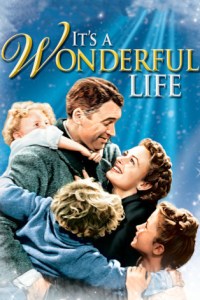
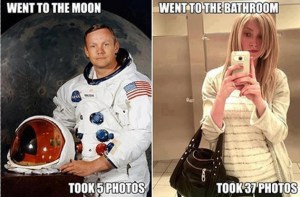 But I hadn’t realized that the selfie could be used as a cruel taunt until I received one from someone who had avoided a get-together and sent me a photo which seemed to be saying “Here I am having fun scoffing fish and chips at the sunny seaside while you’re stuck in London trying to cope with gruelling cancer treatment on your own, ha ha. And by the way, aren’t I cute?” If there’s a good-natured way of responding to something like that I’m afraid couldn’t find it.
But I hadn’t realized that the selfie could be used as a cruel taunt until I received one from someone who had avoided a get-together and sent me a photo which seemed to be saying “Here I am having fun scoffing fish and chips at the sunny seaside while you’re stuck in London trying to cope with gruelling cancer treatment on your own, ha ha. And by the way, aren’t I cute?” If there’s a good-natured way of responding to something like that I’m afraid couldn’t find it.


 ) which I illustrated, and not having access to the real thing and with no internet in those days I bought a plastic construction kit which I carefully assembled and painted in Jerry’s colours (cream and chocolate brown), and drew the car from the model. The book won the Guardian Fiction Prize that year, but I doubt whether my illustrations had anything to do with that.
) which I illustrated, and not having access to the real thing and with no internet in those days I bought a plastic construction kit which I carefully assembled and painted in Jerry’s colours (cream and chocolate brown), and drew the car from the model. The book won the Guardian Fiction Prize that year, but I doubt whether my illustrations had anything to do with that.

 soft-grip bypass ratchet-action loppers with aluminium handles, bought just before the radiotherapy put me out of action for a while. Next year I hope to be able to use them a lot more. Lopping is fun!
soft-grip bypass ratchet-action loppers with aluminium handles, bought just before the radiotherapy put me out of action for a while. Next year I hope to be able to use them a lot more. Lopping is fun!
 All of the other surviving Big Boy class are in museums but over the course of the year I’ve been avidly following the restoration and testing of this one on YouTube, and the sight of it now running under its own steam is a wonderfully stirring thing.
All of the other surviving Big Boy class are in museums but over the course of the year I’ve been avidly following the restoration and testing of this one on YouTube, and the sight of it now running under its own steam is a wonderfully stirring thing.
 Quite hard to find and rather expensive when you do find them, but as something of a crisp connoisseur I’ve found these light and fresh and much tastier than other brands.
Quite hard to find and rather expensive when you do find them, but as something of a crisp connoisseur I’ve found these light and fresh and much tastier than other brands.


 By now I had a full-time publishing job in the West End, but on Saturdays Bob and I helped to run a stall in Portobello Market to raise funds for the playground. The Mountain Grill was our local hangout and It soon became known to us as Maria’s after its roly-poly proprietress, and after several hours on the stall on a freezing winter morning it was great to be able to go and get warm and stuff our faces there. Our favourite dish was chicken pilaf which was served on white oval plates with rice AND chips: a really good big plateful for a couple of quid. When husband George introduced sheftalia — spicy little Greek sausages — onto the menu we sometimes had those, and very tasty they were but not as filling as the pilaff.
By now I had a full-time publishing job in the West End, but on Saturdays Bob and I helped to run a stall in Portobello Market to raise funds for the playground. The Mountain Grill was our local hangout and It soon became known to us as Maria’s after its roly-poly proprietress, and after several hours on the stall on a freezing winter morning it was great to be able to go and get warm and stuff our faces there. Our favourite dish was chicken pilaf which was served on white oval plates with rice AND chips: a really good big plateful for a couple of quid. When husband George introduced sheftalia — spicy little Greek sausages — onto the menu we sometimes had those, and very tasty they were but not as filling as the pilaff.
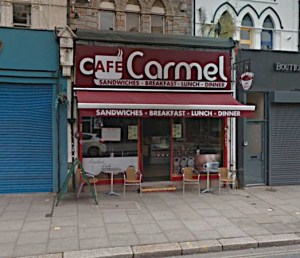
 One of the good things about a blog is that things can be changed and mistakes rectified.
One of the good things about a blog is that things can be changed and mistakes rectified. Autumn is my favourite time of year. I have no patience with those who complain of cooler weather, falling leaves, the nip in the air, darker evenings etc. I love these things and this is England, for heaven’s sake. Sun-worshippers should live somewhere else.
Autumn is my favourite time of year. I have no patience with those who complain of cooler weather, falling leaves, the nip in the air, darker evenings etc. I love these things and this is England, for heaven’s sake. Sun-worshippers should live somewhere else. There have been no mists and no fruitfulness, mellow or otherwise, since a deer got into the back garden and ripped the leaves off the little fruit trees that I planted a couple of years ago — a beautiful creature but in gardening terms a pest — but there may be hedgehogs, which would be welcome. They eat slugs. Celia next door has found evidence of them in her garden though she hasn’t actually seen one so far (neither have I), but ‘ghost hedgehog’ signs can be spotted around the area, and I’ve joined The Dorset Mammal Group to try and do my bit to help.
There have been no mists and no fruitfulness, mellow or otherwise, since a deer got into the back garden and ripped the leaves off the little fruit trees that I planted a couple of years ago — a beautiful creature but in gardening terms a pest — but there may be hedgehogs, which would be welcome. They eat slugs. Celia next door has found evidence of them in her garden though she hasn’t actually seen one so far (neither have I), but ‘ghost hedgehog’ signs can be spotted around the area, and I’ve joined The Dorset Mammal Group to try and do my bit to help.

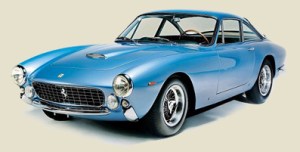 She crashed the car in 1976 but the damage was fairly minor and she didn’t bother to have it repaired as she was now pretty much a shut-in heavily dependent on drugs, which like many rich Californians (and Elvis) she was able to obtain easily despite being under the supervision of a nurse, and her death in March 1977 was due to an overdose of barbiturates and codeine.
She crashed the car in 1976 but the damage was fairly minor and she didn’t bother to have it repaired as she was now pretty much a shut-in heavily dependent on drugs, which like many rich Californians (and Elvis) she was able to obtain easily despite being under the supervision of a nurse, and her death in March 1977 was due to an overdose of barbiturates and codeine. Diggers made a large pit in the ground and a large crane was brought in to lift the crate into it. The grave was then covered with a thick layer of concrete to prevent anyone getting at the crate and its contents — not so much Sandra as the Ferrari which would now be worth around $2 million. The site was marked with a simple stone slab placed alongside that of her late husband Ike, and it has now become something of a tourist attraction in the local area even though there’s nothing much to see.
Diggers made a large pit in the ground and a large crane was brought in to lift the crate into it. The grave was then covered with a thick layer of concrete to prevent anyone getting at the crate and its contents — not so much Sandra as the Ferrari which would now be worth around $2 million. The site was marked with a simple stone slab placed alongside that of her late husband Ike, and it has now become something of a tourist attraction in the local area even though there’s nothing much to see.



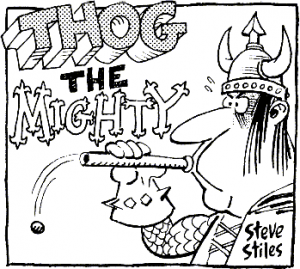

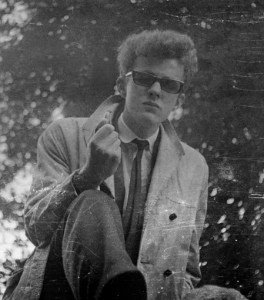



 On the other side of the moat is Badfort, occupied by a crowd of ne’er-do-wells led by Beaver Hateman, and they are Uncle’s enemies. They dress in ragged sacking, get drunk on Black Tom and Leper Gin, and they constantly plot and scheme to embarrass and bring down the Dictator of Homeward. Rev. Martin had an incredible, teeming, hilarious imagination, and if I’d worried that there might be some sort of moral attached to all this I needn’t have. It was pure nonsensical bliss.
On the other side of the moat is Badfort, occupied by a crowd of ne’er-do-wells led by Beaver Hateman, and they are Uncle’s enemies. They dress in ragged sacking, get drunk on Black Tom and Leper Gin, and they constantly plot and scheme to embarrass and bring down the Dictator of Homeward. Rev. Martin had an incredible, teeming, hilarious imagination, and if I’d worried that there might be some sort of moral attached to all this I needn’t have. It was pure nonsensical bliss. especially when independent scientists with no political agenda are telling everyone to be much more cautious, wear masks, keep well apart etc. A message arrives in my inbox from the (non-Governmental) Coronavirus News and Service Updates which reads in part:
especially when independent scientists with no political agenda are telling everyone to be much more cautious, wear masks, keep well apart etc. A message arrives in my inbox from the (non-Governmental) Coronavirus News and Service Updates which reads in part: